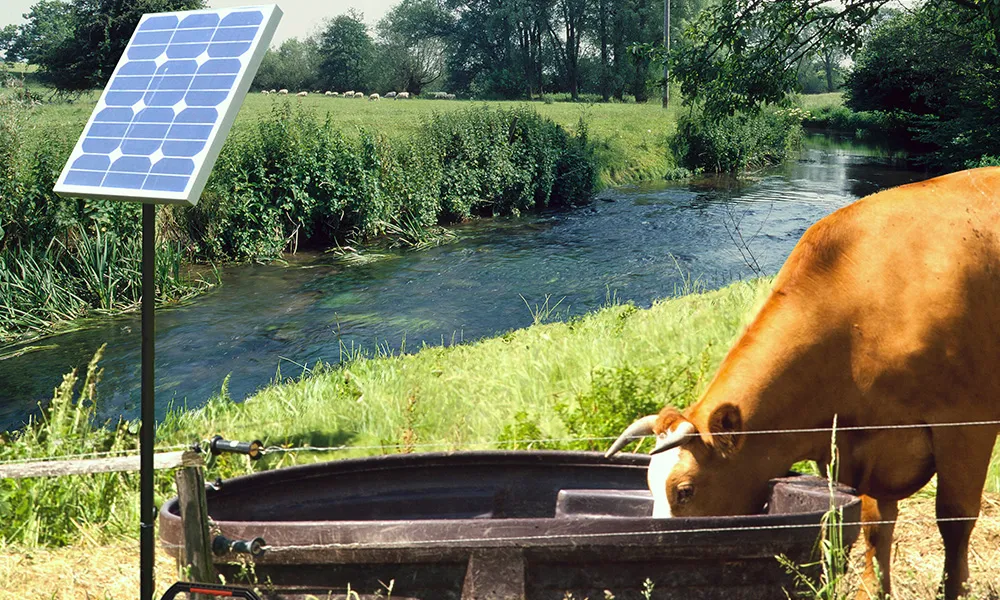
New directive comes into effect
Farmers should be aware that an EU directive on environmental crime, adopted on 11 April 2024, comes into effect today (20 May, 2024). The directive establishes what are to be regarded as the most serious breaches of Europeans' environmental obligations. According to a statement from the European Commission, environmental crime is a growing concern that inflicts serious damage to the environment, the economy and individual health.
Environmental crimes are defined as breaches of relevant legal obligations in relation to the environment, including those activities that result in harm to wildlife, deterioration of habitats, illegal transportation or disposal of waste, pollution and trading illegally in hazardous or toxic substances.
Environmental crimes
Under the newly published law, member states of the European Union will be obliged to ensure that such environmentally damaging activities will be classified as criminal offences in national law. Among the new offences, as set out by the EU, are the following categories:
- Unlawful ship recycling
- Unlawful abstraction of water
- Harmful breaches of EU chemicals and mercury legislation
- Breaches related to dealing with fluorinated greenhouse gases
- Placing on the market and exporting relevant commodities and products in breach of the EU Anti-Deforestation Regulation
- Serious breaches of legislation on invasive alien species.
What the Commissioner said
EU Commissioner for the Environment, Oceans and Fisheries, Virginijus Sinkevičius hailed the introduction of the new directive as a landmark law that will ensure that the most severe breaches of environmental obligations are treated as crimes and that the key role of environmental defenders is acknowledged. The Commissioner went on to say that the directive will “give law enforcement authorities and the judiciary the tools to act effectively against environmental crimes across the union.
The EU Commission maintains that Environmental crimes often transcend state borders and are highly attractive for organised crime groups. Environmental crimes constitute the fourth largest organised crime activity worldwide, leading to an annual loss of between €80 billion and €230 billion.
Summarising the Environmental Crime Directive
The Environmental Crime Directive is intended to support the protection of the environment through the deployment of the mechanisms of criminal law. The directive establishes prison penalties for legal individuals guilty of serious environmental crimes and introduces fines to the value of tens of millions for harmful breaches of environmental obligations.
For example, the Directive states that the following activities now constitute a criminal offence if they are found to be committed unlawfully and intentionally:
- Discharging, emitting or introducing a quantity of materials or substances, energy or ionising radiation, into air, soil or water which causes or is likely to cause the death of, or serious injury to, any person or substantial damage to the quality of air, soil or water, or substantial damage to an ecosystem, animals or plants.
- Abstracting surface water or groundwater within the meaning of Directive 2000/60/EC of the European Parliament and of the Council, where such conduct causes or is likely to cause substantial damage to the ecological status or ecological potential of surface water bodies or to the quantitative status of groundwater bodies.
- Causing the deterioration of a habitat within a protected site, or the disturbance of animal species listed in Annex II, point (a), to Directive 92/43/EEC within a protected site, within the meaning of Article 6(2) of that directive, where such deterioration or disturbance is significant.
In addition to this, the new directive obliges member states classify as criminal offences activities that result in the following:
- The destruction of, or widespread and substantial damage which is either irreversible or long-lasting to, an ecosystem of considerable size or environmental value or a habitat within a protected site
- Widespread and substantial damage which is either irreversible or long-lasting to the quality of air, soil or water.











